Finding The Balance Between Sustainability And Profit At Hong Kong’s The Upper House
At this luxurious 117-room, award-winning city hotel, sustainable practices are seamlessly incorporated into their day-to-day workings, benefiting their bottom line.
15 November 2024
Share this exclusive content from Saladplate
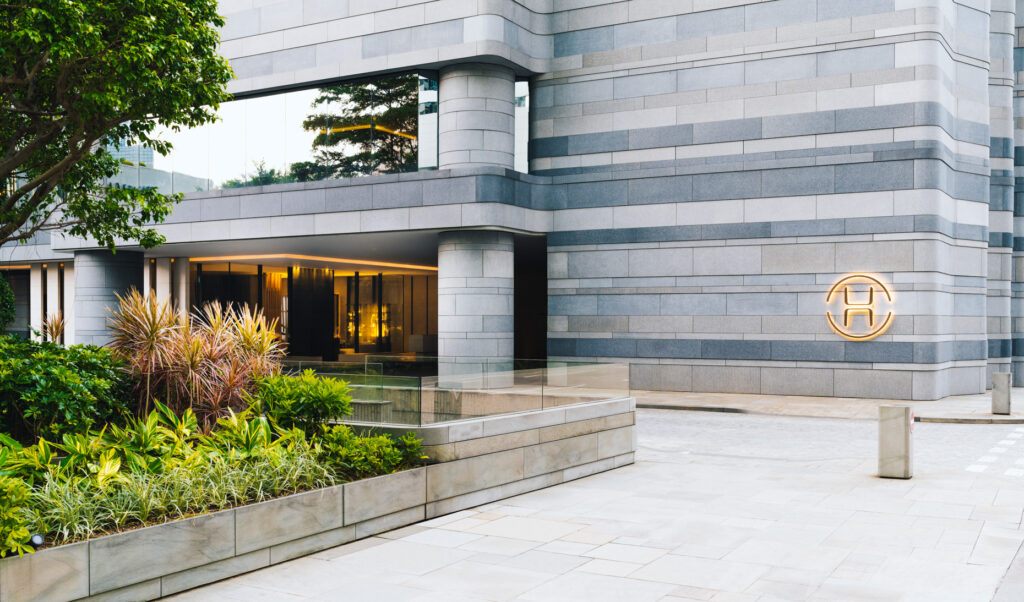
Photo credit: The Upper House
Celebrating 15 years this year, The Upper House first burst onto the Hong Kong hospitality scene in 2009, offering a sleek, minimalist, luxury experience. With pride of place in Admiralty above the JW Marriott, it was the second hotel under Swire Properties’ The House Collective after The Opposite House in Beijing. The hotel group also includes The Temple House in Chengdu and owns a sister group, EAST, which has three locations including one in Miami. The Upper House is also the first hotel project by celebrated Asian designer André Fu.
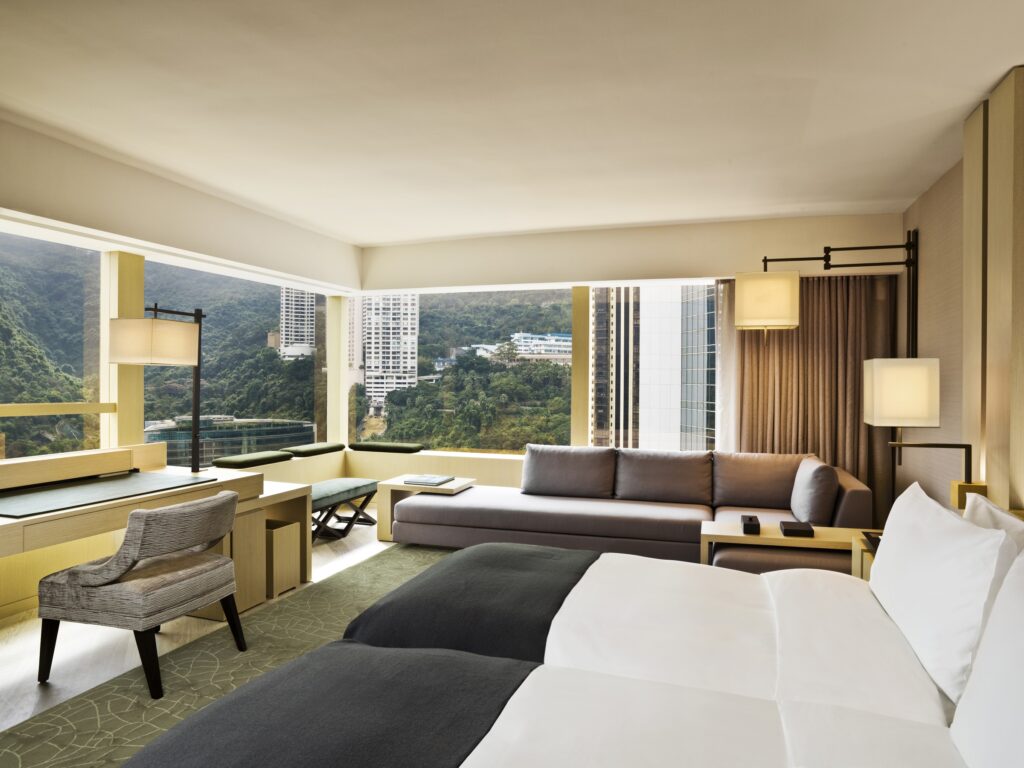
Photo Credit: The Upper House
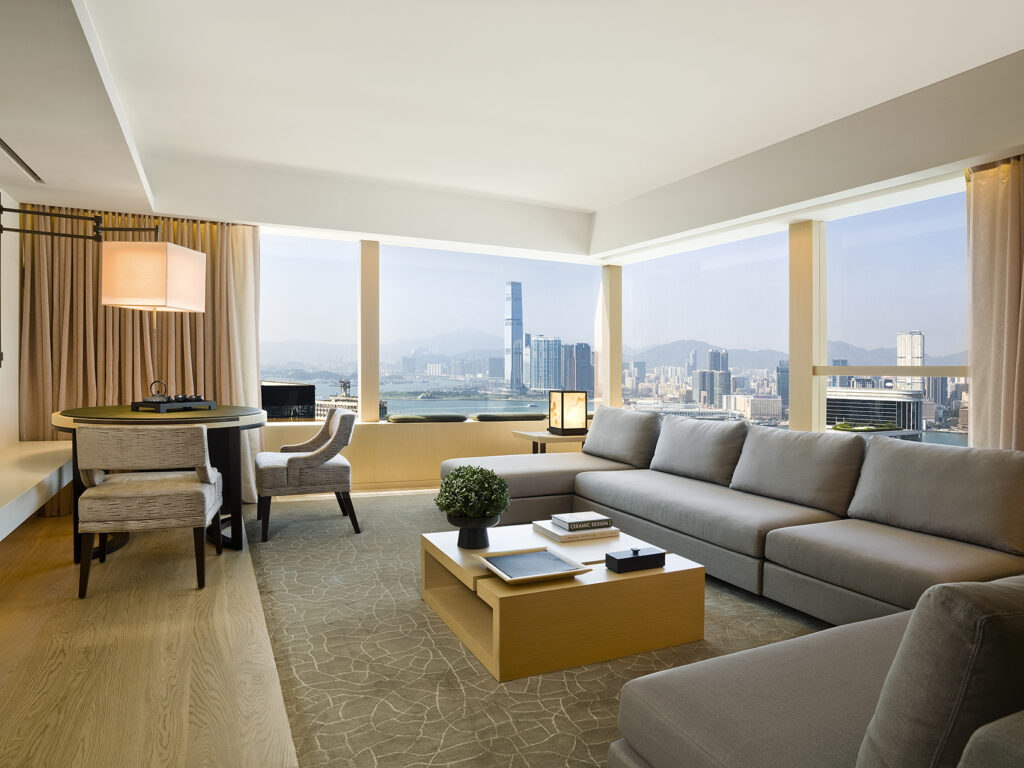
Photo Credit: The Upper House
At The Upper House, sustainability and mindfulness have always been part of the hotel’s ethos. Lawrence Wong, Sustainability Ambassador and Director of Housekeeping for The Upper House and Pacific Place Apartments, cites “small actions, big change” as the company’s motto for environmental awareness, with energy conservation, water conservation and waste management as their main areas of focus.

Since September 2021, all guest rooms were equipped with a water filtration system. Photo credit: The Upper House
Water conservation is one of the most impactful ways the hotel has improved its sustainability measures. In September 2021 for example, all guest rooms were equipped with a water filtration system. “This has significantly reduced our reliance on bottled water, leading to lower costs for purchasing and disposing of empty bottles,” says Wong. The hotel is also a founding member of Belu Hong Kong, a UK-based social enterprise that, through the installation of a water filtration system at the hotel’s restaurant Salisterra, charges a nominal fee for sparkling or still water. This reduces the hotel’s carbon footprint and single-use plastic bottles. 100% of the profits from Belu go to WaterAid, a global water charity which helps bring clean water to communities around the world. The system helps to lower waste and recycling costs, as well as saves fridge space – while still providing premium water.
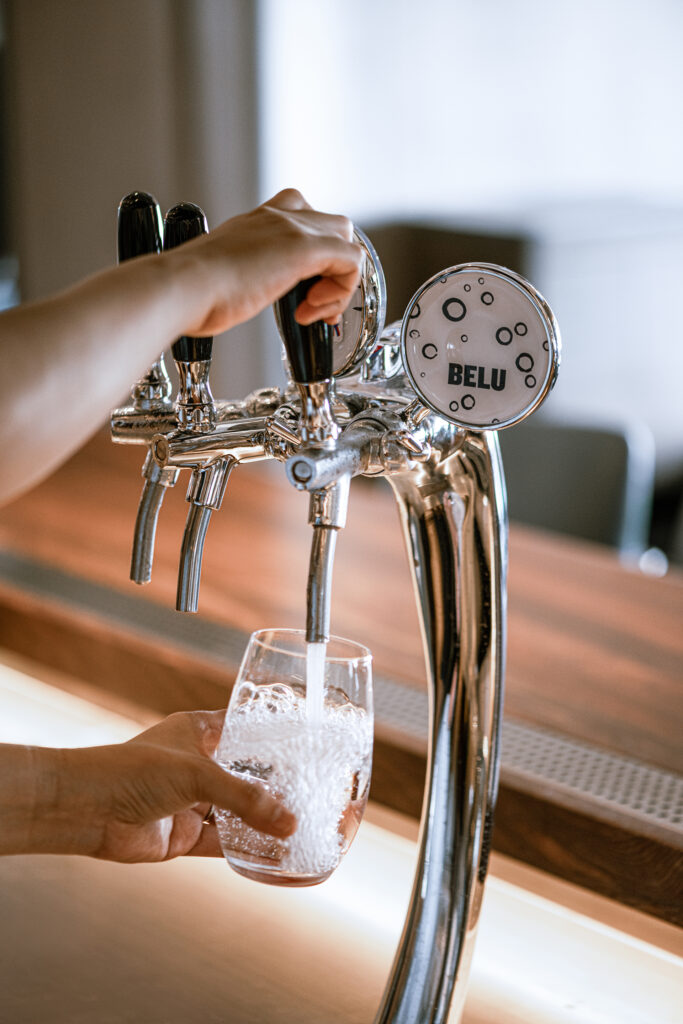
A Belu water-filtration system helps eliminate the use of single-use plastics. Photo credit: The Upper House
“Collaboration is essential for us to enhance our efforts with the support of others,” says Wong. “Our partnerships play a crucial role in our sustainability initiatives because this way we can create a larger, stronger, and greener community in Hong Kong. This collective effort helps us encourage a broader audience to recognize the environmental benefits of adopting sustainable practices.” Another partnership that furthers this goal is their collaboration with the local non-profit, Soap Cycling. Lightly-used bathroom amenities are collected, sanitised and redistributed, which minimises landfill waste. In 2019, the hotel donated HK$60 for every room booking to Soap Cycling which then enabled the organisation to distribute hygiene kits to frontline cleaners and communities. This totalled to over HK$400,000.
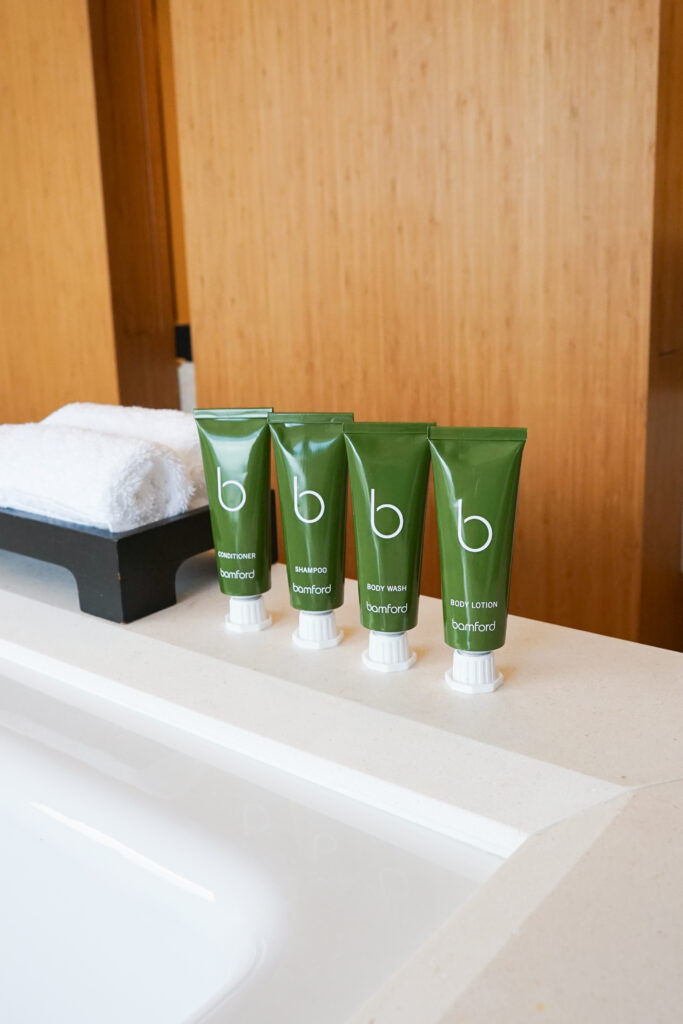
Bathroom amenities by UK-brand Bamford are now packaged in aluminium tubes and are plastic-free. Photo credit: The Upper House
In-room amenities at The Upper House are another area in the hotel that has worked to minimise their carbon footprint, with single-use plastics having been eliminated from in-room consumables. Bathroom amenities by UK-brand Bamford are now packaged in aluminium tubes and sparkling water from the minibar comes in glass bottles. Wong notes that using recyclable amenities has allowed the brand to minimise the waste that ends up in landfills, which reduces their disposal costs. “We prioritise high-quality, reusable items that last longer than single-use products, further enhancing our sustainability efforts.”
Wong says implementing efficient systems has also helped reduce the hotel brand’s costs all around and improved service quality. He gives the example of the Green Kitchen Initiative, which was launched between The House Collective and East (their sister hotel brand). “This is a group-wide effort to ensure our kitchens and restaurant spaces are designed to run as sustainably as possible,” he explains, noting that 40% of municipal solid waste in Hong Kong is made up of food waste. “Additionally replacing components of our refrigeration compressor allowed us to minimise electricity by 30kw, creating savings on energy consumption.”
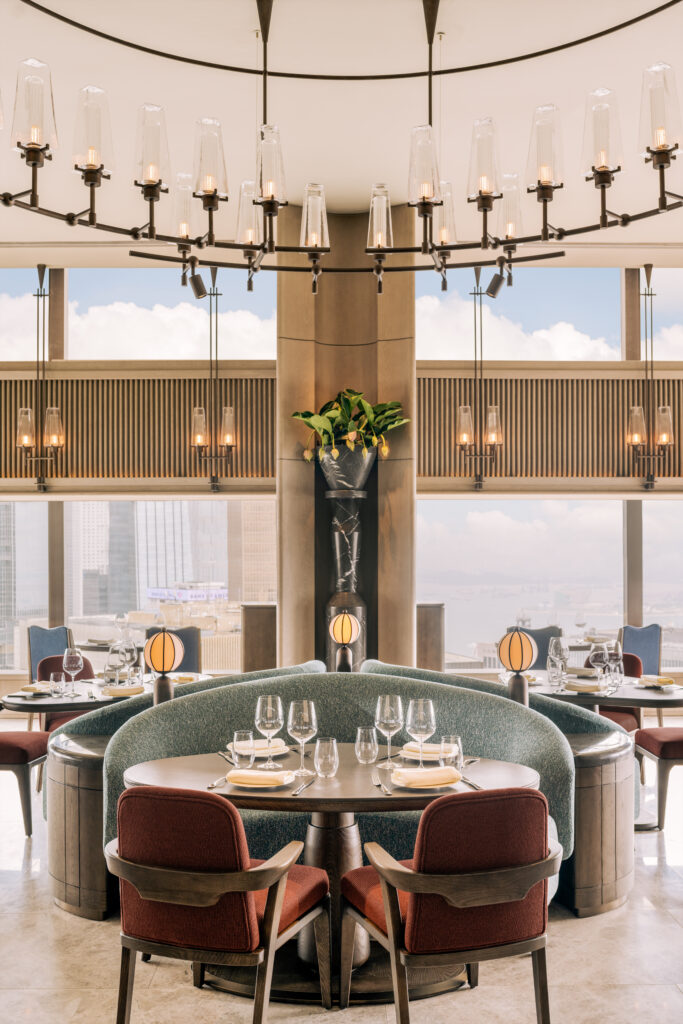
Photo credit: The Upper House
The measures made to improve sustainability at the hotel have not gone unnoticed by their guests, who tend to be a clientele interested in both slow luxury and minimising their carbon footprints. “Many of our guests are eco-conscious,” agrees Wong. “And they truly appreciate having access to filtered water and eco-friendly amenities during their stay.” These quiet touchpoints continue to make The Upper House a popular choice for the modern luxury traveller. “The world is changing, not just from technological and cultural advances, but also from the impact humans have on the environment,” says Wong. “We understand that we have the power to effect change in our communities through our decisions and actions. We want to create a healthy ecosystem of people who embody our values, are concerned about our impact on the environment and have the passion to always grow, inspire and innovate.”


Photo credit: The Upper House
Author: Karen Fong
Karen Fong is a Singapore-based writer and editor who has previously spent time in Hong Kong, Shanghai and Canada. She writes parenting, lifestyle and travel content and has worked with publications including The Singapore Women’s Weekly, DestinAsian, Travel+Leisure Southeast Asia and Prestige Hong Kong.



